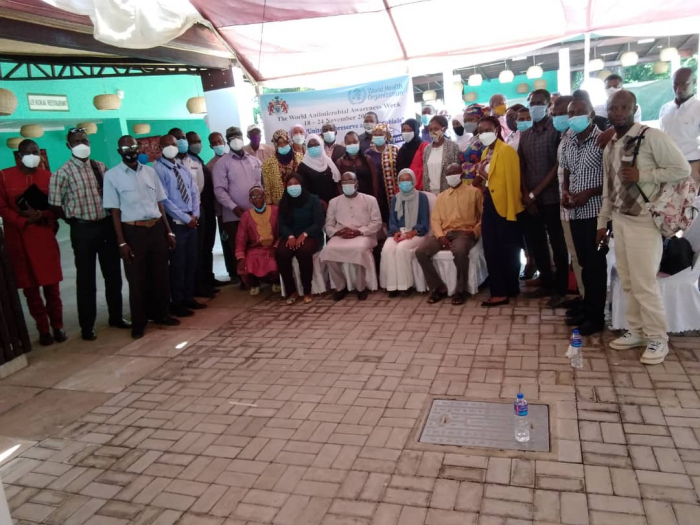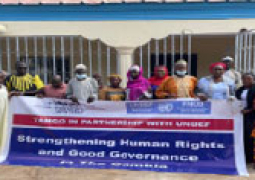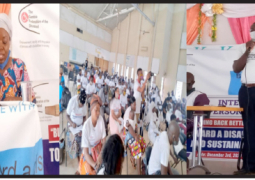
The theme of this year’s World Antimicrobials Awareness Week celebration for the human health sector is – ‘United to preserve antimicrobials’.
The celebration seeks to increase global awareness of Antimicrobial Resistance (AMR) and to encourage best practices among health workers, policymakers and the general public to prevent the further emergence and spread of drugs resistant infections.
Deputising for the Minister of Health, Karamba Keita, deputy permanent secretary, Technical at the Ministry of Health reminded that Antimicrobials Resistance is of utmost concern in both developing and developed world, particularly The Gambia where there is no established antimicrobials surveillance system.
“Antimicrobials Resistance (AMR) is an emerging global threat. AMR infections cause 700,000 deaths every year globally and are estimated to account for 10 million deaths each year by 2050 if no actions are taken. World Health Organization has warned that the current trend in the emergence and spread of AMR could lead to ‘post-antibiotic era’ catastrophic consequences.”
DPS Keita maintained that the risk and burden of AMR in Africa are disproportionately higher because of high population and disease burden triggering antimicrobials demand together with the unregulated antimicrobial use in both human and animals and the wide circulation of counterfeit and substandard medicines.
“Antimicrobial Resistance (AMR) occurs when a microorganism (bacteria, viruses, fungi and parasite) resist the action of medication, which are meant to eradicate them, making them common infections harder to treat and increasing the risk of disease spread, severe illness and death.”
For his part, Dr Desta A. Tiruneh country representative of the World Health Organisation (WHO), acknowledged that antimicrobials agents are critical tools for fighting disease in humans, animals and plants and include antibiotics, antiviral, antifungal and antiprotozoal medicines.
“Antimicrobials resistance occurs when drugs such as antibiotics and antiviral no longer work as they should and in some cases, no longer work at all because bacteria, parasite, fungi and viruses adapt and do not respond to these medicines.”
Dr Tiruneh underlined that governments, partners and the private sector can work together by investing in water and sanitation and hygiene infrastructure and limiting antimicrobials in livestock and aquafarming.
Speaking earlier, Babanding Sabally, director of National Pharmaceuticals Services indicated that AMR is an emerging global threat which calls for all hands on deck to curtail its prevalence.
He maintained that another way to fight the menace is to create mass sensitisation among the populace.
The event was characterized by a power point presentation by Dr Ousman Ceesay, deputy director Animal Health Department of Livestock Services, Dr Saffie Darboe, a microbiologist with the Medical Research Council Gambia and Dr Haddy Bah, chief Scientist/ Fellow in Virology, EFSTH.





